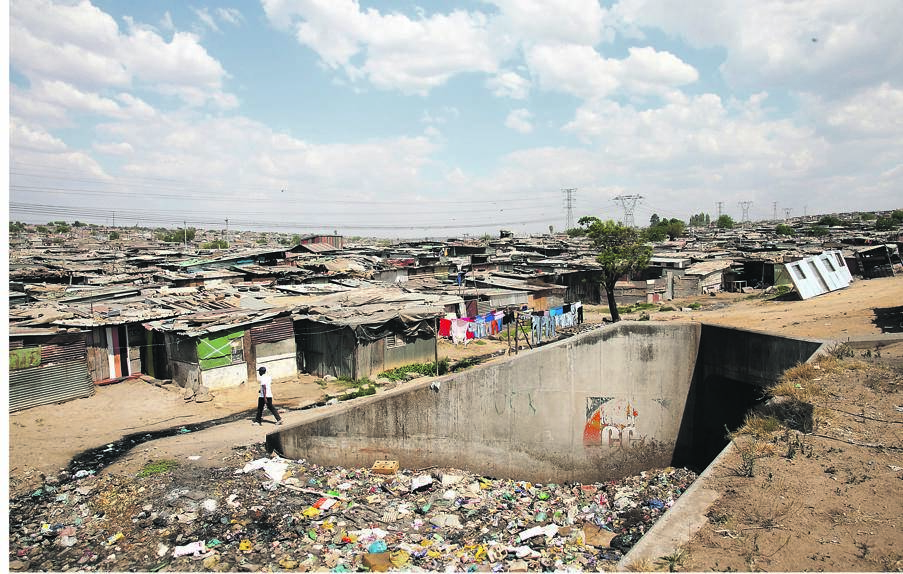Decent living standard is possible

In South Africa, each person has a constitutional right to live a life of dignity, a right to access to food and shelter, and basic services such as water, electricity and proper sanitation.
An impartial research on poverty and inequality conducted by the Studies in Poverty and Inequality Institute, the Southern African Social Policy Research Institute and the Labour Research Service has produced in-depth analysis of the multifaceted levels of deficit in this respect.
As a result, the vision of a decent standard of living came about as a deeply thought through concept informed by analysis of the baseline study data.
Different groups of people were invited in their respective geographical areas to specifically talk on issues affecting them and to write down what they considered would be necessary for everyone to live their lives without struggle.
A list of 21 items emerged, and they are called socially perceived necessities.
These necessities include main electricity in the house; someone to look after you if you are ill; housing that is strong enough to withstand the weather; clothing that is sufficient to keep you warm and dry; a place of worship in your local area; a fridge; street lighting; ability to pay for or contribute to funerals; having police on the streets in the local area; tarred roads close to the house; a flushing toilet in the house; someone to talk to if you are feeling upset or depressed; a neighbourhood without rubbish on the streets; a large supermarket in the local area; a radio; someone to transport you in a vehicle if you need to travel in an emergency; a fence or wall around your property; being able to visit friends and family in hospital or other institutions; regular savings for emergencies; a TV; and a neighbourhood without smoke or smog in the air.
The wellbeing of a person is measured by how many of these socially perceived necessities they have access to.
Lives of ordinary people in a modern developing country such as South Africa are dependent on elected representatives who are tasked to oversee government’s delivery of basic services and to provide an enabling environment to support their initiatives.
Many people, particularly Africans, suffered massive deprivation owing to racial segregation and other forms of maltreatment, and consequently endured a life out of the ordinary that left some without hope of ever becoming active citizens.
They ended up with little trust for those in power.
The concept of a decent standard of living, with its focus on specific necessities, should therefore enable policymakers and communities to collectively formulate a path to wellbeing.
Theoretically, South Africans are free but in reality they are suffering and are poor, with more than 55.5% of them living in poverty and more than one in four living below the food poverty line.
Massive inequalities also exist; persistently rising structural unemployment is one of the country’s biggest problems and has stunted all planning within government thus far.
Research shows that only around 3% of the population (1.7 million out of a total 56 million) have all 21 socially perceived necessities.
Just a little more than a quarter (26% or 14 million) of the population have 18 or more necessities, and 42% (23 million) of people have 16 or more necessities.
If well thought out, the decent standard of living can be a tool to advance understanding of what to tackle to build towards the universal enjoyment of a decent and/or adequate standard of living for all citizens.
It provides a bold declaration of aspiration as well as a measure to track progress and to understand regress if and where it occurs.
Intrinsically, it provides a tool that can be used to consider income-related assessments and policy interventions as well as achievements in advancing social acceptance broadly through a better social wage.
The researchers will continue to mine the rich available data about household types and rural/urban geographical areas, as well as the gender and age demographics of households.
This will enable us to build an understanding of what is required to achieve a decent standard of living for all, a life of dignity and one without struggle.
As the ratings agency Moody’s is used to rank the investment health of South Africans, it is hoped that government is willing to adopt the decent standard of living to better define what is required to be done to mark this administration as a turning point in the health and wellbeing of its people.
Recent Posts
- Can we afford NOT to have a BIG in South Africa? – Podcast
- Joint Stakeholder Submission on the Right to Adequate Standard of Living in South Africa
- SPII’s Contribution – Submission to UN CESCR
- Political Elites Must Break Ranks to Crush Poverty, Inequality
- Podcast: High Price to Pay for the Rising Cost of Living
- More People Believe They Are Living Under Poverty in South Africa
- Nkululeko Majozi Speaking on Subjective Poverty in South Africa
- Podcast: In The Ring With Eusebius McKaiser – Can we afford a Basic Income Grant?
- Extending the Social Relief of Distress grant is not enough to alleviate plight of poor, says civil society
- Global Basic Income Grant Pilots Since 2000











